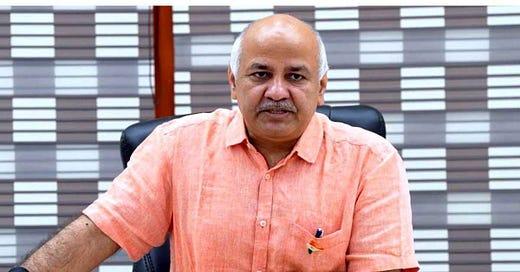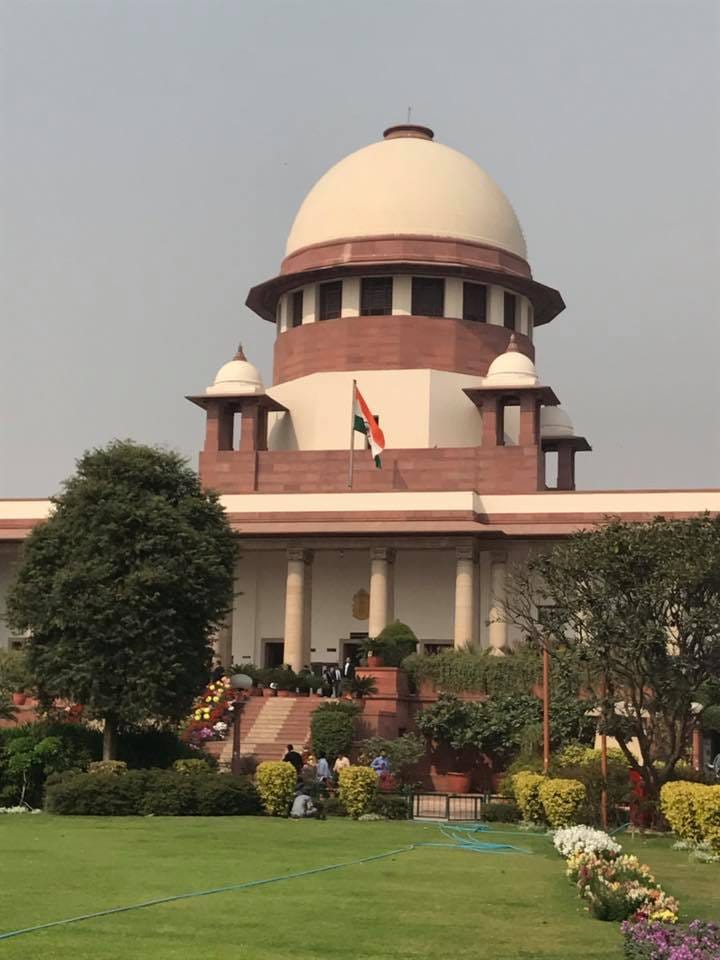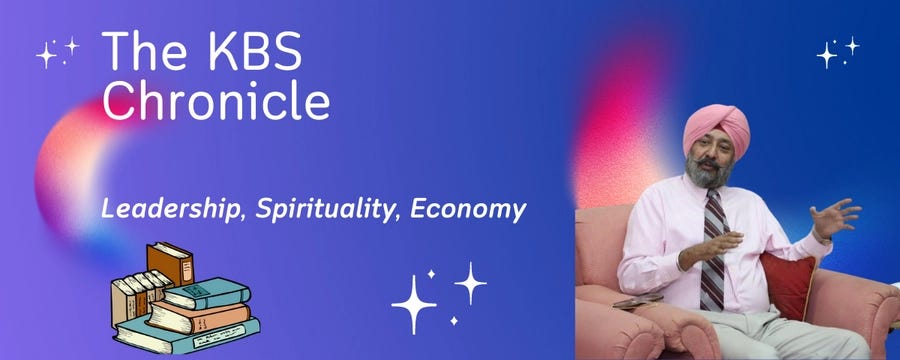Breaking News: Manish Sisodia's Bail Plea Dismissed by Supreme Court—can apply afresh in 3 months.
Supreme Court, however, directs that the trial should be completed within 6 to 8 months; if the trial proceeds slowly, Sisodia will be entitled to apply for bail again within 3 months.
Major Setback for Sisodia
In a significant blow to former Delhi Deputy Chief Minister, Manish Sisodia, a Supreme Court Bench comprising Justice Sanjiv Khanna and Justice SVN Bhatti today (barely minutes ago) dismissed his bail applications. However, the Court directed that the trial should conclude within a timeframe of 6 to 8 months. Should the trial face delays, Sisodia will be entitled to reapply for bail in three months' time.
Sisodia, accused in cases related to the "Delhi Liquor Scam" by both the Central Bureau of Investigation (CBI) and the Enforcement Directorate (ED), has been in judicial custody since February. His earlier applications for bail had also been rejected by the Trial Court and the Delhi High Court. Today's Apex Court judgment, reserved on 17th October 2023, follows an unusually extensive hearing for a bail case.
A Very Serious Observation by the Bench
While the full judgement has yet to be uploaded on the Court’s website, Justice Khanna, speaking on behalf of the Bench, made the following observations while pronouncing the order1: "Legal questions have been answered in a limited way. In the analysis, there are certain aspects, which we said are doubtful. But one aspect, with regard to transfer of money, Rs 338 crores, is tentatively established. We have therefore dismissed the application for bail.” He further added, "We are dismissing the application for bail, but we have made one pointed observation which is that they have assured that the trial will be concluded within six to eight months. So within three months, if the trial proceeds sloppily or slowly, he'll be entitled to file an application for bail."
"Bail, Not Jail" Not Applicable to PMLA cases
The Supreme Court found itself obliged to deviate from its oft-reiterated principle that "Bail, not Jail" should be the general rule. This departure is significant due to the far more stringent and onerous conditions for bail set out under the Prevention of Money Laundering Act (PMLA), 2002, compared to those in general criminal law. The order is likely to set a precedent for a more cautious judicial approach in other cases involving serious financial offences and corruption, as governed by the PMLA.
Criteria for Granting Bail
In usual circumstances, the court evaluates the following aspects while considering bail:
Likelihood of the accused absconding.
The accused's potential for intimidating witnesses.
Possibility of tampering with evidence.
For Sisodia, all three conditions appeared to have been satisfied in his favour, based on ordinary law.
Special Conditions under PMLA
The Prevention of Money Laundering Act (PMLA), 2002, however, sets more rigorous conditions for bail, particularly detailed in Section 45 of the Act. To summarise, Section 45 stipulates:
Twin Conditions: No person accused of an offence punishable with a term exceeding three years for any of the “scheduled offences” shall be released on bail unless:
The Public Prosecutor has been afforded an opportunity to oppose the bail application.
Where such opposition is made, the court must find reasonable grounds for believing that the accused is not guilty and that he is unlikely to commit another offence whilst on bail.
Unpacking the Apex Court's Decision
The Supreme Court appears to have accorded considerable weightage to the submissions made by Additional Solicitor General SV Raju, representing the CBI and ED, who argued that the trial involving Sisodia—merely one among multiple co-accused—would conclude within three to four months. Given the voluminous list of witnesses—294 for the CBI case and over 160 for the ED case—as well as the nearly 50,000 documents that need to be scrutinised, this is an ambitious timeline. Nevertheless, the Court seems inclined to take the ASG's projection at face value.
To maintain the case's momentum, the Supreme Court has stipulated that the trial should be concluded within 6 to 8 months. If the trial does not progress at the expected pace, Sisodia will have the opportunity to apply for bail anew within a 3-month window.
Charges Against Sisodia
Manish Sisodia is confronted with a multitude of charges, including cheating, criminal conspiracy, and bribery. Moreover, the Enforcement Directorate contends that he engineered kickbacks amounting to ₹100 crore by altering Delhi's Excise Policy. Sisodia has unequivocally denied all allegations and maintains his innocence.
In Summary: Lingering Questions and Political Implications
Today's judgment is undeniably a significant setback to Manish Sisodia, leaving numerous questions about the future direction of this high-profile case up in the air. These questions will likely only be resolved as the trial unfolds. While time will ultimately reveal the dispensation of justice, the emphasis on a speedy trial is a cornerstone of due process, as implicitly mandated by Article 21 of the Indian Constitution. However, a speedy trial can be a double-edged sword; it's as much an opportunity for vindication as it is for potential incrimination. The next noticeable milestone in this unfolding saga will be within three months. By that time, the pace of the trial should be discernible, and it will also present Manish Sisodia with a window of opportunity to exercise his right to apply for bail afresh. This time-frame could serve as a crucial juncture for both the prosecution and the defence in shaping the case's future trajectory.
Political Repercussions: Disappointment for Kejriwal and AAP
Today's Supreme Court order is undoubtedly a significant disappointment for AAP leader Arvind Kejriwal, who would have expected, and indeed welcomed, Manish Sisodia's return to the political arena, especially given Kejriwal's growing commitments to cultivate opposition unity as India gears up for the 2024 Lok Sabha elections. Furthermore, Kejriwal's other key aides, Satyender Jain and Sanjay Singh, remain in custody on similar charges, and today's judgement may well have lowered the likelihood of them securing bail in the near future. However, if their respective trials continue at a slow pace, they could invoke today's Supreme Court judgement as a basis for applying for bail.
Today's development injects fresh layers of complexity into the case, affecting it both legally and politically. It stands as an unfavourable turn for the AAP, its National Convenor, and, of course, Manish Sisodia personally. As the nation's gaze remains fixed on the unfolding events, this could well serve as a subtle point of inflexion that shapes the broader political arena, especially in the run-up to the Lok Sabha elections in 2024.
https://www.livelaw.in/top-stories/supreme-court-manish-sisodia-aap-bail-delhi-excise-policy-241147







Commendable decision by the Supreme Court. Trial court will decide the fate of Sisodia.